United Nations Conference on Trade and Development (UNCTAD) Investment Policy Reviews
Filter :
Sustainable Development Goals
Subject
Publication date

Report on the Implementation of the Investment Policy Review: Sierra Leone
In 2024, the Government of Sierra Leone requested UNCTAD to review the implementation of the Investment Policy Review (IPR) recommendations and provide guidance to continue improving the investment environment. This report analyses progress and suggests additional actions to support the achievement of Sierra Leone’s 2024–2030 Medium-Term National Development Plan and the Sustainable Development Goals (SDGs), based on UNCTAD’s Investment Policy Framework for Sustainable Development (IPFSD).

Report on the Implementation of the Investment Policy Review - The Gambia
The report analyses progress made to strengthen the investment climate and highlights additional actions based on the Investment Policy Framework for Sustainable Development of UNCTAD to support the achievement of the country’s 2023–2027 Recovery-Focused National Development Plan and the Sustainable Development Goals.
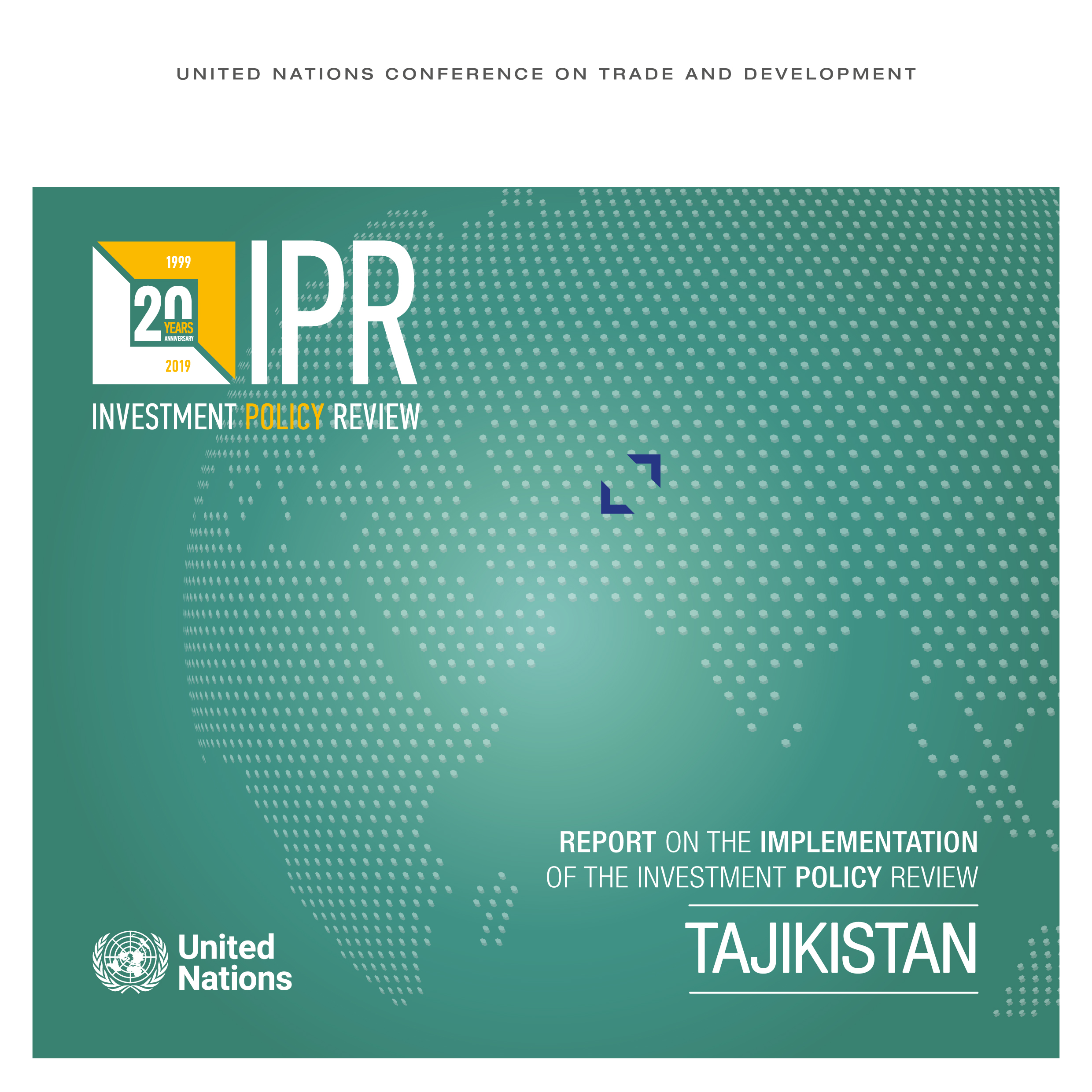
Report on the Implementation of the Investment Policy Review - Tajikistan
In 2021, the Government of Tajikistan requested UNCTAD to conduct an assessment of the implementation of the recommendations in the IPR. This Report evaluates the progress made to strengthen the investment environment and highlights additional actions to support the country’s objectives and foster sustainable development based on the Investment Policy Framework for Sustainable Development.
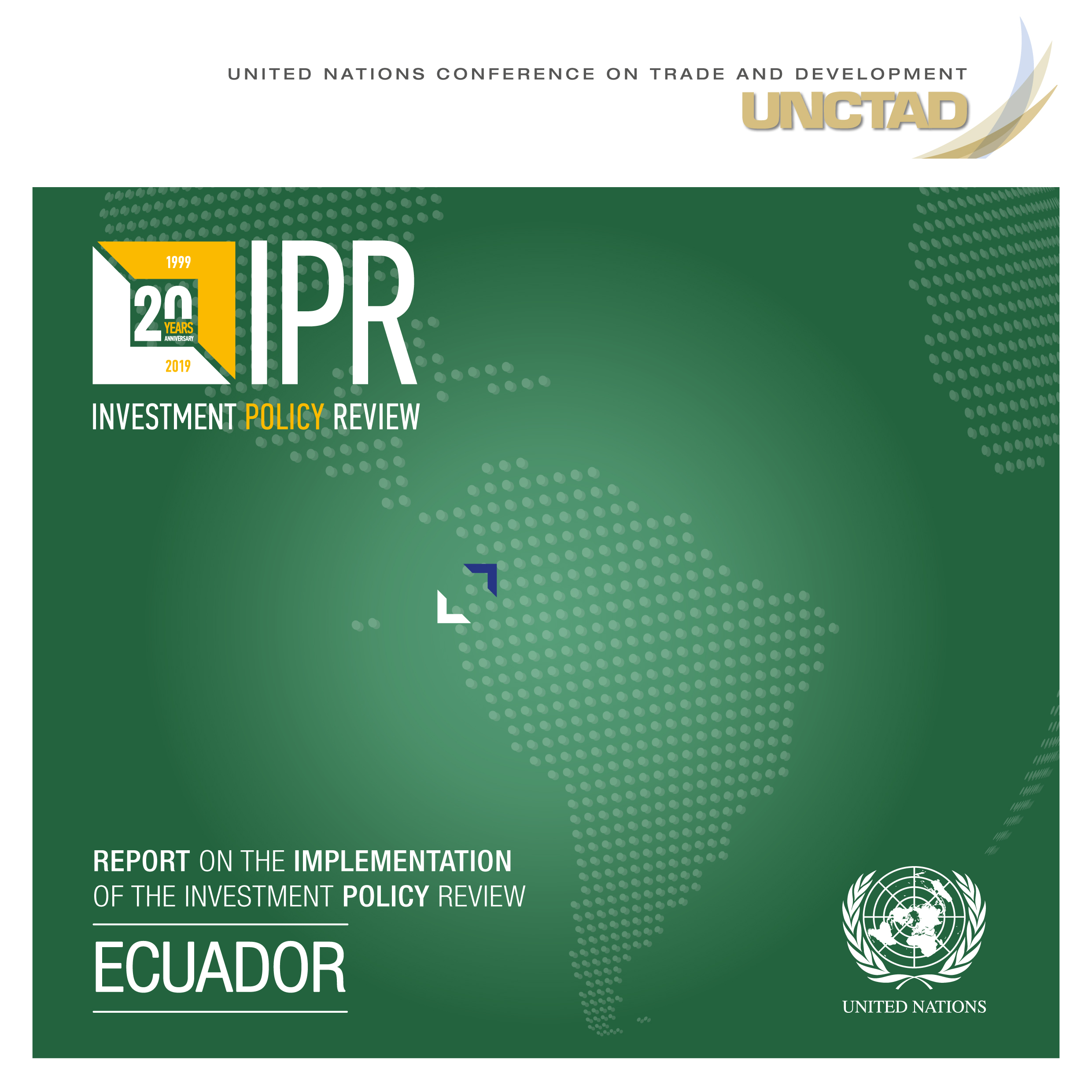
Report on the Implementation of the Investment Policy Review - Ecuador
This publication assesses progress made to improve the investment environment in Ecuador since the publication of the UNCTAD Investment Policy Review in 2003. It analyses recent trends in foreign direct investment flows, alongside their contribution to achieving sustainable development in the country. It also reviews the key legal and regulatory instruments for investment, assessing the institutional setting that supports it. Finally, the report provides key recommendations to further improve the business environment and facilitate the attraction of investment.
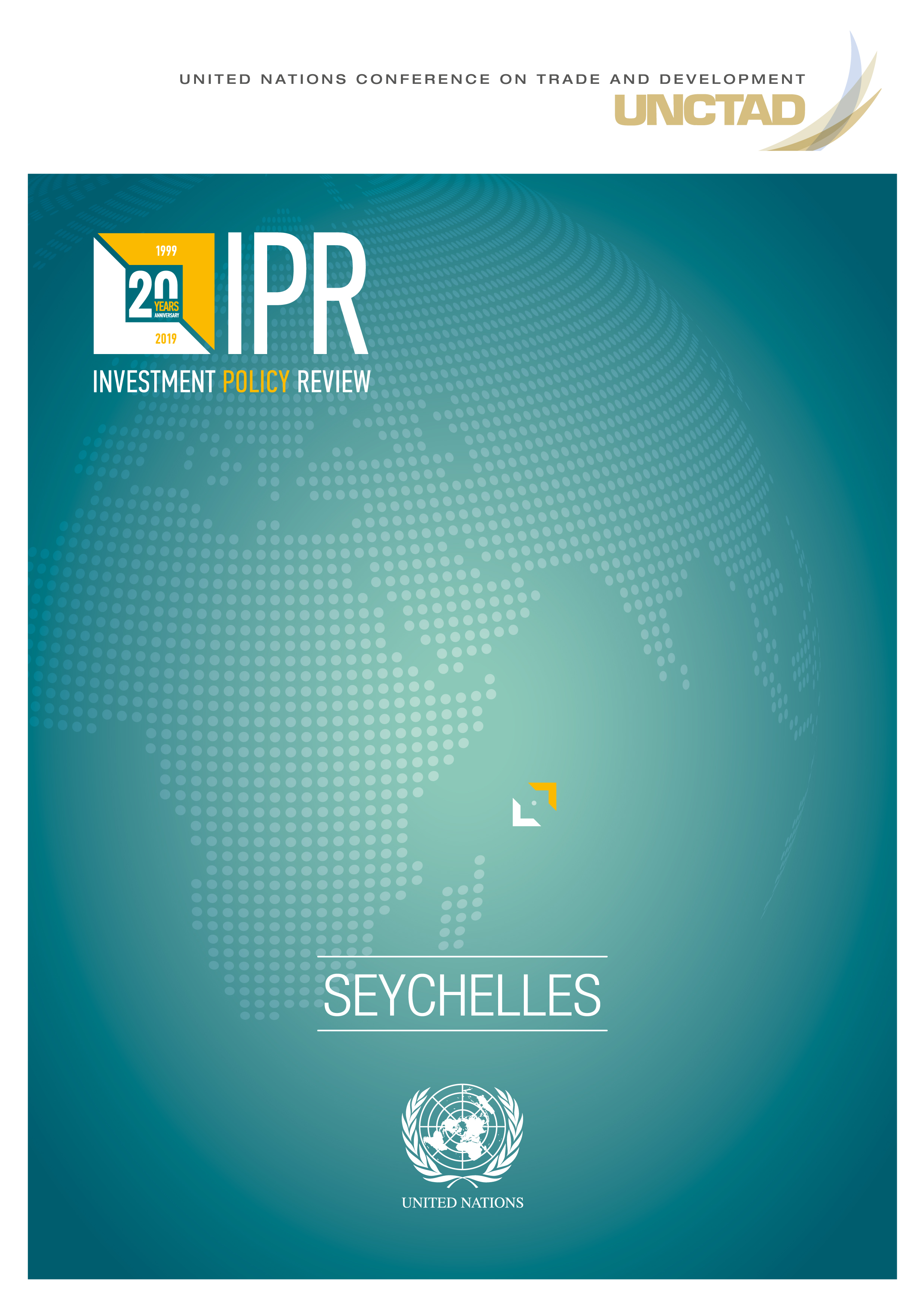
Investment Policy Review - Seychelles
The Investment Policy Review (IPR) of Seychelles assesses the country’s legal, regulatory and institutional framework for investment. This includes the analysis of FDI-specific regulations (investment laws, sectoral investment regulations and international investment agreements), and also general regulatory and operational aspects affecting both domestic and foreign investors (such as issues related to tax policy, competition, trade, environmental protection, business operations, intellectual property etc.). The IPR provides concrete policy recommendations to foster economic diversification, private sector development as well as institutional development and capacity building.

Report on the Implementation of the Investment Policy Review - Nepal
The IPR of Nepal, completed in 2003, analyzed the legal, regulatory and institutional framework for investment in the country. It examined how to increase the contribution of investment, including foreign direct investment, to the economy and made concrete recommendations on how to achieve such objective. The report on the Implementation of the IPR of Nepal will review the progress made in implementing the recommendations set out in the IPR.
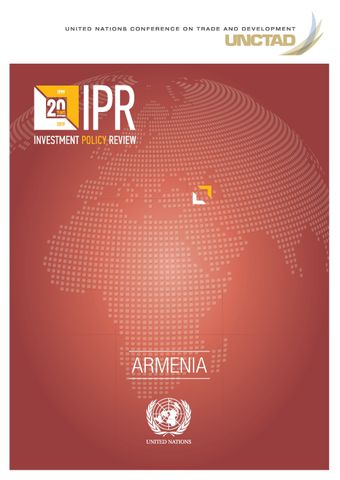
Investment Policy Review - Armenia
The Investment Policy Review of Armenia makes concrete policy recommendations on how Armenia can improve its investment climate, attract higher inflows of foreign direct investment and derive more benefits from them.
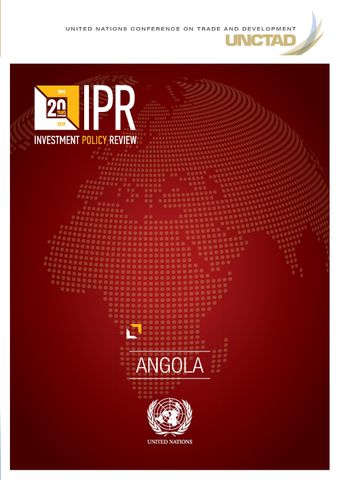
Investment Policy Review - Angola
FDI in Angola has been highly volatile and concentrated in the extractive sector. Initiatives to improve investment attractiveness are hampered by various challenges affecting the policy environment. The IPR provides action-oriented recommendations to create an environment conducive to investment and leverage the FDI potential to progress towards sustainable development. The report contributes to the Government’s efforts to achieve the dual objective of graduating from least developed country (LDC) status and meeting the SDGs.
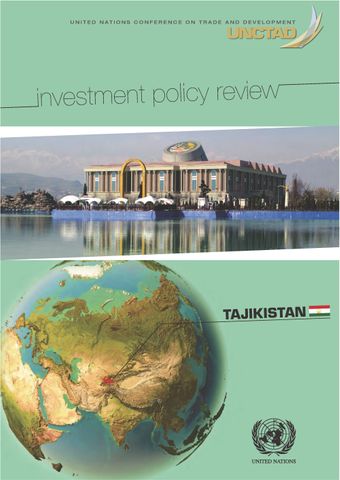
Investment Policy Review - Tajikistan
More than a decade of high economic growth has contributed to poverty reduction in Tajikistan. Following independence, the country suffered significant economic losses and social costs, which were compounded by the consequences of the civil war that ended in 1997. Since that time, peace and political stability have been consolidated, and Tajikistan has adopted a reform agenda to progressively enhance its development prospects. The reforms contributed to higher economic growth rates and positive social development. For instance, since 2000, gross domestic product (GDP) growth averaged about 8 per cent, contributing to significant poverty reduction, and the inflation rate fell from close to 40 per cent in 2001 to 6 per cent in 2014 (World Bank, 2015a).
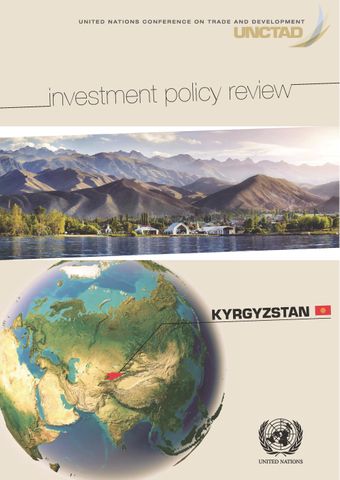
Investment Policy Review - Kyrgyzstan
Kyrgyzstan has substantial untapped economic growth and sustainable development opportunities. Strategically located at the crossroads between Europe and Asia, on the ancient Silk Road, this landlocked mountainous country is an established trading center and has the potential to become a regional transport and logistics hub. Temperate weather and good pasture lands for cattle breeding have made agriculture a major economic activity. Abundant mineral resources have started attracting significant investment from foreign mining companies.

Investment Policy Review - Bosnia and Herzegovina
Bosnia and Herzegovina is a transitional economy striving towards European integration. Soon after independence from the Socialist Federal Republic of Yugoslavia in 1992, Bosnia and Herzegovina plunged into a conflict which came to an end with the signing of the Dayton Peace Accords in 1995. Since then, Bosnia and Herzegovina has been committed to democracy and the transition to a market economy.

Investment Policy Review - The Sudan
Sudan has a significant but largely unexploited potential to attract foreign investors, notably due to ongoing internal conflicts. The country is also facing the consequences of the secession of South Sudan, in particular the loss of the bulk of its oil reserve. In this context, reassuring and rebuilding the trust of investors is essential to attract them to Sudan.
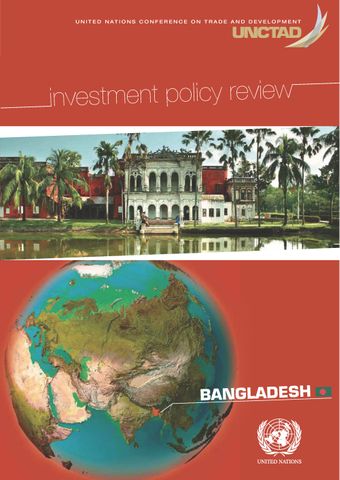
Investment Policy Review - Bangladesh
The Investment Policy Review of Bangladesh, prepared by UNCTAD at the request of the Government, identifies the issues that should be addressed if foreign direct investment (FDI) is to play a larger role in the country's development. The IPR concentrates on the analysis of the regulatory and legal framework that should be considered to reach this objective. The IPR also analyses the contribution of FDI to improving infrastructure.
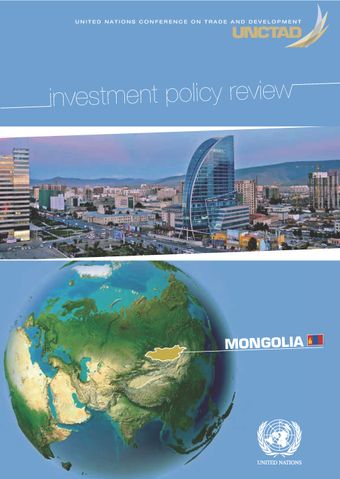
Investment Policy Review - Mongolia
Mongolia is a resource-rich country with formidable growth prospects. Having adopted a democratic system and a market economy, the country is today at a turning point, as the discovery of huge mineral resources could pave the way to rapid economic and social development. While many of the building blocks of such development are in place, further efforts are required to ensure that the revenues derived from the mining industry are used effectively and geared towards sustainable development. In this regard, the UNCTAD Investment Policy Review (IPR) of Mongolia focuses on how to attract and use foreign direct investment (FDI) and other forms of transnational corporation (TNC) involvement to foster economic diversification, which is recognized as fundamental to achieving inclusive growth and poverty reduction.

Investment Policy Review - The Former Yugoslav Republic of Macedonia
The IPR of the former Yugoslav Republic of Macedonia analyzes FDI trends and their impact on the host economy, provides a detailed evaluation of the legal and regulatory framework for investment, including concrete recommendations to improve it, and presents an overall strategy to attract investment that feeds into a government programme for stimulating investment covering the period 2011 to 2014.

Investment Policy Review - Republic of Moldova
Following independence in 1991, the Republic of Moldova experienced one of the largest and longest-lasting losses of productive capacity among transition economies. The crisis, associated with a severe decline in manufacturing and agricultural activities, lasted throughout the 1990s and spurred an exodus of the working age population. An economic recovery started in the early 2000s and continued throughout the decade, largely fuelled by migrants’ remittances and services. The economy also proved resilient to the recent global crisis, though output remains below its pre-independence level.
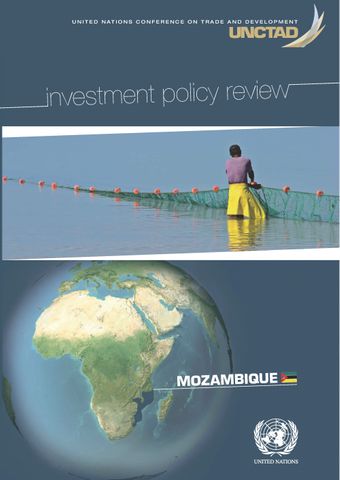
Investment Policy Review - Mozambique
The Investment Policy Review recommends that the Government of Mozambique widen the scope of its investment promotion efforts and further improve its regulatory framework in order foster economic activity, job creation and sustainable development. It encourages the authorities to look beyond mega-projects and investments in the mining sector for sources of job creation, economic diversification and poverty reduction. It warns against the potential pitfalls of relying excessively on mineral resources for development, while stressing the need to maximise the positive impact of investment in extractive industries. It also suggests concrete ways through which the business environment could be further improved to foster economic activity.
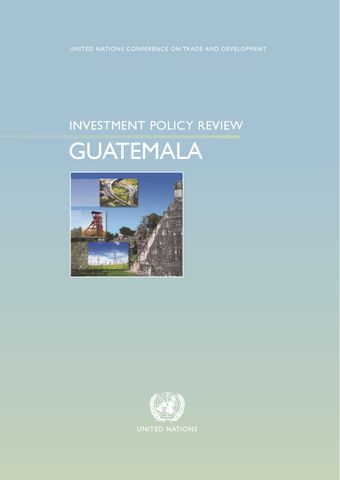
Investment Policy Review - Guatemala
Guatemala is one of the countries in Latin America with the longest foreign direct investment (FDI) attraction record. This Report reviews the different policies that bear an impact on FDI in Guatemala, with a view to recommending concrete policy actions to improve the country's attractiveness and the benefits from FDI throughout the economy and in relation with the strategy sectors identified by the government.
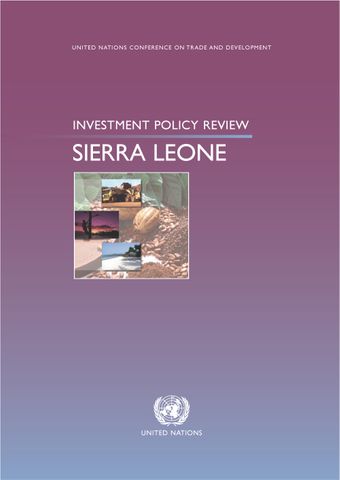
Investment Policy Review - Sierra Leone
Sierra Leone has important investment opportunities and growth potential in various sectors of the economy. The country continues however to bear the impact of the civil war 2002, including in terms of weak economic performance, human capital shortages, deficient infrastructure network and poor image. The investment policy review (IPR) takes note of the open and favourable FDI regulatory regime and of the guarantee against expropriation. It stresses though that the government policy should target the negotiations of a more comprehensive bilateral investment treaty and double taxation treaty network to boost the country's FDI attractiveness. At the request of the Government of Sierra Leone, the report outlines the elements of a strategy to stimulate investment while urging the international community to continue supporting the peace and economic reform processes in Sierra Leone.
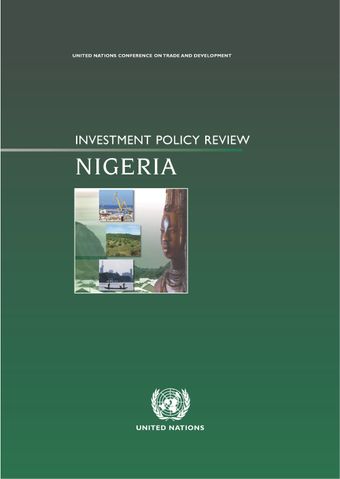
Investment Policy Review - Nigeria
Nigeria is well known as a major oil producer. However, oil wealth has not been converted unto a comparable improvement in living standards, due to decades of economic mismanagement. The report provides an overview of foreign direct investment (FDI) trends and performance; analyses the investment framework; outlines a strategy of “supported market forces” to induce and support foreign affiliates in manufacturing to increase their presence in the country and in so doing the contribution to Nigeria’s development. The final chapter summarizes the main findings of the report and the proposed policy recommendations.
